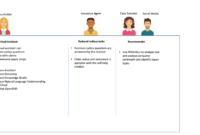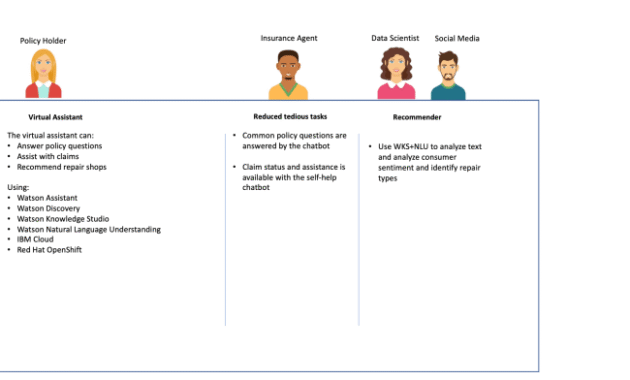What is Professional Indemnity Insurance? This essential coverage serves as a safeguard for professionals against claims of negligence or inadequate services. In an increasingly litigious world, understanding this insurance is vital for anyone offering professional advice or services. Spanning various sectors, from healthcare to consulting, Professional Indemnity Insurance not only protects your financial well-being but also enhances your credibility, proving to clients that you are serious about your responsibilities.
This insurance is designed to cover legal costs and damages that may arise if a client feels wronged by your work. As the global marketplace expands, so too does the complexity of professional relationships, making it crucial to have the right protection in place. A well-rounded understanding of this insurance can empower professionals to navigate their fields confidently, ensuring that they are prepared for unforeseen challenges.
In a world overflowing with information and choices, the ability to persuade others has transformed into a crucial skill. Whether in business, personal relationships, or everyday conversations, the art of persuasion can be a powerful ally. But what does it mean to persuade, and how can we master this invaluable skill? Join us as we delve into the intricate tapestry of persuasion, exploring its nuances, techniques, and profound impact on our lives.
The Essence of Persuasion: What Is Professional Indemnity Insurance?
At its core, persuasion is the act of convincing someone to embrace a point of view, adopt a belief, or take a specific action. It is more than mere argument; it is an intricate dance of communication that weaves together logic, emotion, and credibility. To persuade effectively, one must understand the needs, motivations, and emotions of their audience. This understanding allows the persuader to tailor their message in a way that resonates, creating a connection that fosters receptivity.
The Psychology Behind Persuasion
The psychology of persuasion is a fascinating field that reveals the underlying mechanisms that drive our decisions and beliefs. Renowned psychologist Robert Cialdini identified six principles of persuasion that can significantly enhance one’s persuasive abilities:
- Reciprocity: People tend to feel obligated to return favors. By offering something of value first, you set the stage for a persuasive exchange.
- Commitment and Consistency: Once someone commits to a stance, they are more likely to stay consistent with it. Ask for small commitments that can lead to larger ones.
- Social Proof: Individuals often look to others for guidance in uncertain situations. Demonstrating that others have made similar choices can sway opinions.
- Authority: People are more likely to trust and follow someone who is perceived as an expert in their field. Establish your credibility to enhance your persuasive power.
- Likability: Building rapport and being likable can create an environment ripe for persuasion. People are more inclined to say yes to those they like.
- Scarcity: The fear of missing out can drive action. Highlighting the limited availability of an opportunity can spur quick decisions.
Crafting Your Persuasive Message
Understanding these principles is only the beginning. The next step involves crafting your persuasive message. Here are some key strategies to consider:

1. Know Your Audience
The foundation of effective persuasion lies in knowing your audience. Conduct thorough research to understand their values, preferences, and pain points. This knowledge allows you to tailor your message to address their specific needs, increasing the likelihood of a positive response.
2. Build a Strong Narrative
Humans are inherently drawn to stories. A well-crafted narrative can evoke emotions and create a connection with your audience. Use storytelling to illustrate your points, making your message relatable and memorable. Incorporate personal anecdotes or case studies that demonstrate the benefits of your perspective.
3. Use Clear and Concise Language
Simplicity is key in persuasive communication. Avoid jargon and complex terminology that may confuse your audience. Instead, use clear and concise language that conveys your message effectively. The more straightforward your communication, the more likely it is to resonate with your audience.
4. Anticipate Objections
Addressing potential objections proactively can significantly enhance your persuasive efforts. Identify common counterarguments and prepare responses that mitigate concerns. By acknowledging dissenting opinions, you demonstrate thoughtfulness and strengthen your position.
5. Call to Action
Every persuasive message should culminate in a clear call to action (CTA). Whether you want your audience to make a purchase, sign a petition, or simply reconsider their viewpoint, your CTA should be compelling and easy to follow. Create a sense of urgency to motivate immediate action.
Persuasion in Different Contexts
The art of persuasion transcends various contexts, from marketing and sales to personal relationships and negotiation. Each scenario demands a unique approach while still adhering to the fundamental principles of persuasion.
1. In Business
In the corporate world, persuasive skills are vital. Whether pitching a new idea to stakeholders or negotiating a contract, the ability to articulate value and inspire confidence can lead to successful outcomes. Tailor your message to highlight mutual benefits and align your proposal with the goals of your audience.
2. In Personal Relationships, What is Professional Indemnity Insurance?
Persuasion is equally important in personal relationships. Whether trying to convince a friend to join you on a trip or persuading a partner to consider a new perspective, understanding their emotions and motivations allows for more effective communication. Empathy plays a crucial role here; when people feel understood, they are more open to being persuaded.
3. In Negotiation
Negotiation often hinges on persuasion. It’s about finding common ground while advocating for your interests. Use the principles of reciprocity and social proof to create a collaborative atmosphere. A successful negotiation is one where both parties feel heard and valued, leading to a mutually beneficial agreement.
The Ethical Dimensions of Persuasion
While mastering the art of persuasion holds significant power, it also comes with ethical responsibilities. Persuasion should never be about manipulation or deceit; rather, it should aim to inform and empower others to make their own choices. Transparency and honesty are essential components in building trust, which is the cornerstone of any persuasive endeavor.
Conclusion: The Power of Persuasion
In conclusion, the art of persuasion is a multifaceted skill that can illuminate paths to success in countless areas of life. By understanding the psychology behind persuasion, crafting compelling messages, and applying effective techniques, you can enhance your ability to influence others positively. Remember, the true essence of persuasion lies not in coercion but in fostering understanding and connection. Embrace this art, and watch as your relationships, career, and life transform before your eyes.











